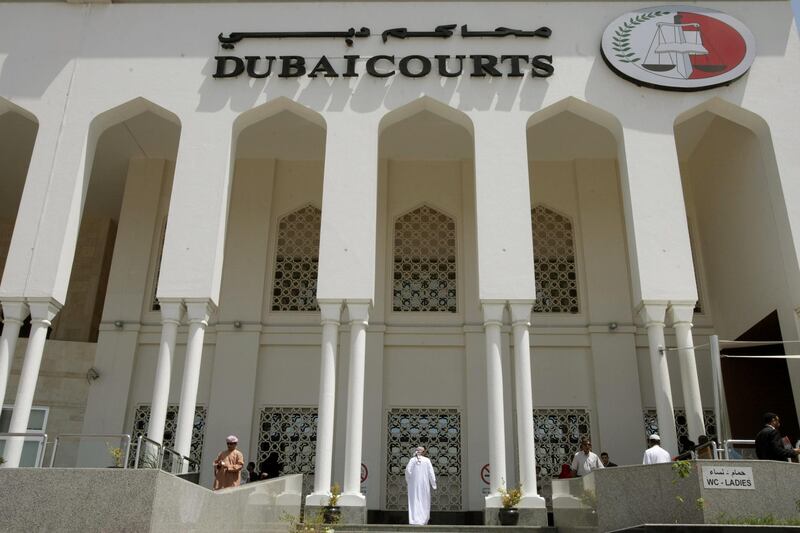An Emirati man jailed for setting fire to a Dubai Police detention centre killing 14 prisoners has been granted early release from a life sentence.
The 40 year old made an emotional plea to judge Fahad Al Shamsi, telling him he was a changed man after 18 years behind bars.
He was convicted along with four others of setting fire to the detention wing of Bur Dubai police station in 2001 in a crime that stunned the country and made headlines abroad.
Two Emirati accomplices, an Omani and a fifth person who had no identification documents or passport, were all jailed for life after a trial in 2003.
“The long years behind prison bars taught me many lessons and morals that led me to change from a reckless to a responsible one,” he wrote in a letter to the court.
The five were inmates in the temporary detention centre and described as drug users.
The men had caused "chaos" in the two weeks before the blaze, even attempting suicide as they went cold turkey in their cells, Bur Dubai station chief Lt Col Jamal Al Marri said at the time.
On October 29, they used a cigarette lighter to set fire to blankets and foam mattresses in a cell hall where dozens of inmates accused of drug offences were kept.
The five drenched their clothes in water and covered their faces to avoid smoke inhalation.
The fire spread quickly to other cells and carbon monoxide from the foam mattresses claimed the lives of many of the 14 casualties.
A further 15 prisoners were injured in the fire.
Dubai Criminal Court sentenced the men to life and ordered they pay Dh2.1m in blood money to the families of the dead. They were also made to pay Dh210,000 to police. The judgment was upheld by Dubai Court of Appeal and Dubai Cassation Court.
The men have each applied for an early release on completion of 15 years of their life sentences, submitting certificates of good conduct from the prison.
Prosecutors have sought to block their release, telling judges the men should serve the sentence they were originally handed.
In a letter to the court seen by The National, the Emirati said "I do not deny that I was irresponsible and reckless which is why I was sentenced to life in prison".
"These long years represented the great teacher to me and have taught me a lot, and brought me closer to God," he said.
"I have lost so many years of my life, it is true, but I have known that life embodies many other meanings that I would not have known otherwise."
"I have spent half of my life in jail and will not live longer than what has already passed. All I wish for is to be able to see my mother, kiss her feet and ask her to forgive me after she endured for my sake."
Little is known about the inmates other than their ages and nationalities, but a prison social worker said in a report to judges that the Emirati had joined several reformative programmes and that his good behaviour had influenced fellow inmates.
"The inmate’s goal is to learn from his previous mistakes, to make society forget [about his past crimes] and prove to them that he is a useful and good member of the society," she wrote.
"He seeks to find a suitable job while pursuing his university education and compensate society and his family for the hurt he caused them during his jail term."
How inmates can seek early release
The UAE’s Federal Law No. 43/1992 provides inmates serving life sentences with an opportunity to win early release.
The legislation states convicts can submit the request after completing 15 years of their jail term.
The request, along with the prisoner’s file, is examined by a specialist committee within the correctional facility.
They decide whether the individual should be granted release based on their conduct.
“The committee, when putting forth its recommendation, takes into account the inmates’ current profiles, their conduct during incarceration and if they would pose a threat to society once released,” said legal consultant Hassan Elhais from Al Rowaad Advocates in Dubai.
“It does not look at the original crime or the circumstances that lead to the incarceration, because that was the duty of judges who had punished him or her with a life sentence.”
If convinced, the committee submits the request and its own recommendation to the public prosecution, which transfers the request to the criminal court.
If the court denies the request, the inmate has the right to reapply after one year of the initial application date.
“If there were any financial dues related to the case [that] the petitioner for an early release still had not paid, they have to be paid or the request will be denied,” said assistant chief prosecutor Ahmad Al Attar.
Additional reporting by Liza Ayach







